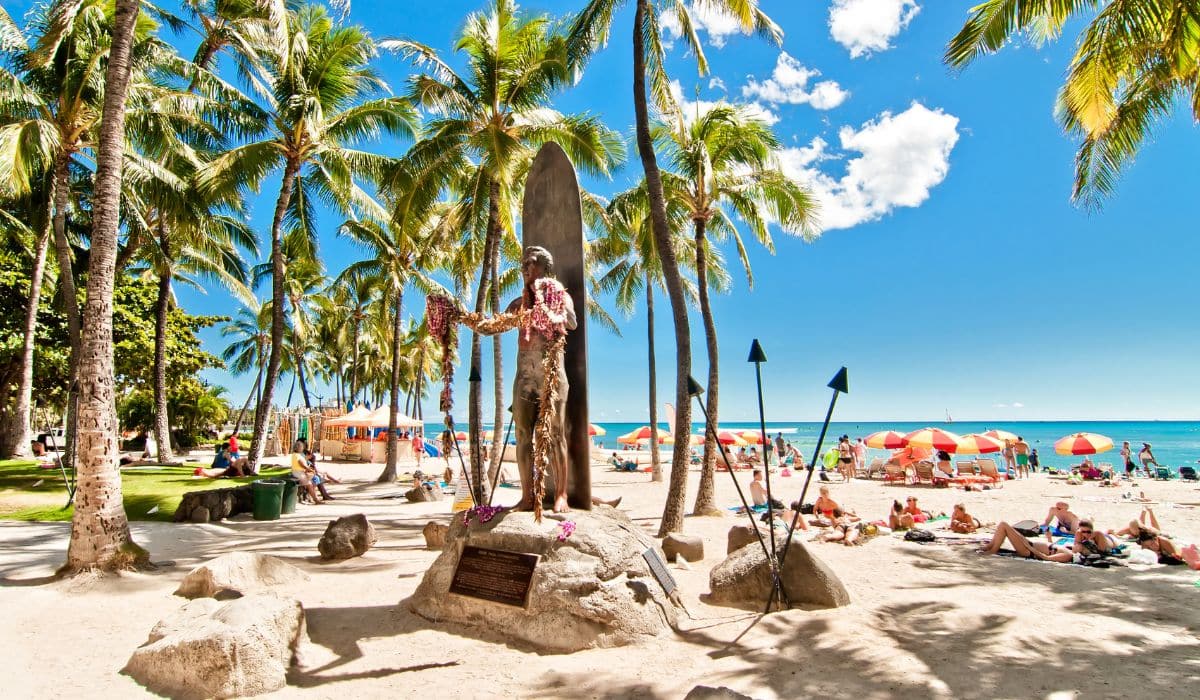The time that Hawaii begged tourists to stop coming in large numbers. The Aloha State has been experiencing an unusual decline in hotel occupancy and room rates for several months.
Let’s clarify something first. Looking at the 2024 statistics, Hawaii still earns the most “revenue per available room” (RevPAR) and the highest “average daily rate” (ADR).
And compared to international competitors, O’ahu leads the “sun and beach destinations” category with an occupancy rate of 80.1 percent, followed by Aruba (76.9 percent) and Puerto Rico (76.9 percent).
But the state is still missing out on revenue. There is a continuing downward trend that is beginning to worry the authorities.
In an effort to boost the industry, the Aloha State has launched aggressive marketing campaigns to bring back tourists.
“We are being more assertive in our messaging strategy with inspiring campaigns that highlight the people, culture and experiences of Hawaii like nowhere else in the world,” said HTA board chairman Mufi Hannemann.
“We must ensure that the Hawaiian Islands remain top-of-mind for travelers amid the competitive global market, especially in the summer and fall.”
The two most ambitious campaigns include: “The People. The Place. The Hawaiian Islands,” that promoted environmental and cultural conservation and “Yappari Hawai’i,” focuses specifically on the Japanese market.
Shockingly, these campaigns have not delivered the expected results.
From January to June, RevPAR fell to $276, which is 2.3 percent lower than last year. The ADR was $370, which is 2.5 percent lower than in 2023. There was an insignificant increase in occupancy of 0.1 percent, but it was 5.7 percent lower than before the pandemic.
All these numbers translate into Hawaii generating a total of $2.8 billion in revenue. 2.3 percent lower than in 2023.
Why doesn’t Hawaii attract as many tourists as before? –

One of the reasons hotel stakeholders have cited is the lingering effects of last year’s wildfires in once-busy Maui County.
The natural disaster killed 101 residents and forced 7,200 survivors to turn to local hotels for shelter.
On the other hand, hotel prices are sky-high and the government has proposed eliminating up to half of the province’s vacation rentals.
The result: Hotel occupancy in Maui has fallen to 58.3%, screwing up all the state numbers. According to them, this has become a worrying trend in recent months.
‘It’s ugly there. We might get a last minute pick up for the summer, but will this be enough to be as good as last year or the year before? I doubt it. It will fall a little short,” said Lynette Eastman, general manager of the Surfjack Hotel & Swim Club in Waikiki.
If Hawaii’s high prices have put you off booking your tickets to the islands, this unusual combination of factors pushing down prices could be your best bet for crossing this destination off your bucket list.





